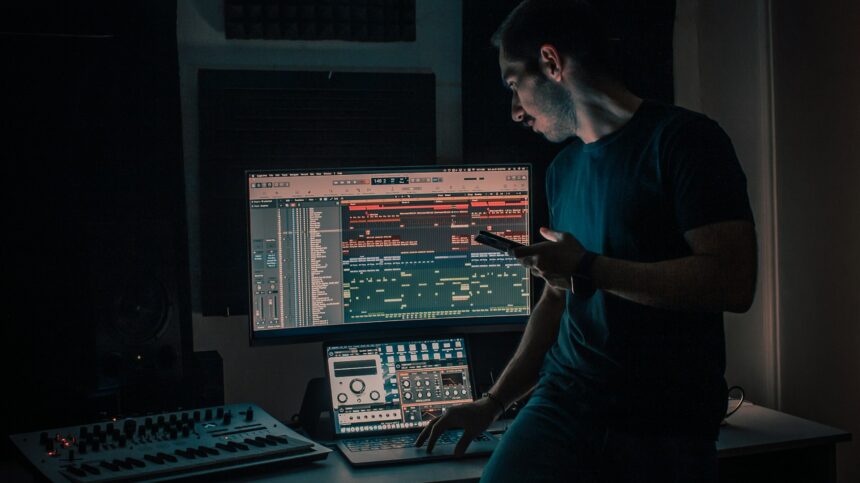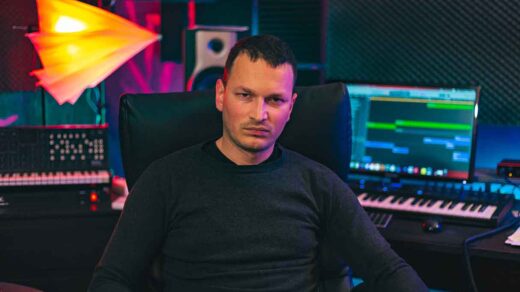The music industry has undergone a seismic shift over the past few decades, with electronic dance music (EDM) emerging as a dominant force in both the mainstream and underground scenes. As a music producer in this genre, you’re at the epicenter of creativity and innovation, crafting the beats and sounds that move millions. However, talent alone doesn’t guarantee financial success. In this comprehensive guide, we’ll explore various strategies for making money as a music producer, with a particular focus on electronic dance music.
Understanding the EDM Landscape:
Before diving into monetization strategies, it’s crucial to understand the electronic dance music landscape. EDM encompasses a wide range of sub-genres, from house and techno to dubstep and trance. Each has its own culture, fan base, and market dynamics. As a music producer, identifying where your style fits within this spectrum can help you target the right audience and industry players.
Producing Hit Tracks:
The most direct way to earn money as a music producer is by creating music that resonates with listeners. Crafting a hit track in the EDM world requires not only musical prowess but also an understanding of current trends and what makes people dance. Invest time in perfecting your production skills, keeping up with the latest software and equipment, and studying successful tracks to understand what makes them tick.
Selling Beats and Samples:
Many music producers generate income by selling beats and samples to other artists or production companies. Platforms like Splice, Beatstars, and Sounds.com allow you to monetize your creations by offering them to a global audience. Ensure your samples are high-quality, original, and cater to the needs of EDM producers to stand out in a crowded market.
Licensing Music:
Licensing your tracks for use in commercials, films, TV shows, video games, and other media can be a lucrative revenue stream. To get started, you can work with music libraries or licensing agencies that specialize in placing music in various media. Make sure your tracks are professionally produced and versatile enough to fit various contexts.
Streaming and Digital Sales:
With the rise of streaming services like Spotify, Apple Music, and YouTube, the way people consume music has changed dramatically. Ensure your music is available on these platforms to reach a broad audience. While streaming royalties may not be substantial, they can add up over time, especially if your music gains popularity. Additionally, selling digital downloads through platforms like iTunes or Bandcamp can provide a direct income source.
Performing Live:
Performing live is a significant revenue source for many EDM producers. Whether you’re playing at clubs, festivals, or private events, live performances can not only earn you money but also help build your brand and fan base. Invest in creating a compelling live show that showcases your skills and engages the audience.
DJing:
Many music producers in the electronic dance music scene also work as DJs. This dual role allows you to play your tracks and others’ music, providing exposure and an additional income stream. Networking with club promoters and event organizers can open up opportunities for gigs.
Teaching and Workshops:
If you have a knack for teaching, consider offering production workshops or one-on-one lessons. Sharing your knowledge with aspiring producers can be rewarding and profitable. You can conduct these sessions in person or online, expanding your reach.
Merchandising:
Selling merchandise is another way to monetize your brand. This can include anything from branded clothing and accessories to sample packs and plugins. Merchandise can be sold at gigs, through your website, or on platforms like Shopify and Big Cartel.
Collaborations and Remixes:
Collaborating with other artists can lead to new opportunities and revenue streams. You can also offer remix services, which can help you gain exposure if you remix tracks for well-known artists. Ensure that any collaborations or remixes are properly contracted to secure your financial interests.
Music Production Services:
Offering production services, such as mixing and mastering for other artists, can be a steady source of income. Build a portfolio of your work to showcase your skills and attract clients. Networking with artists and labels in the EDM scene can lead to more business.
Crowdfunding and Fan Support:
Platforms like Patreon and Kickstarter allow fans to support their favorite artists financially. You can offer exclusive content, early access to tracks, or other perks to incentivize fan contributions.
Conclusion:
Making money as a music producer in the electronic dance music industry requires a combination of creativity, business acumen, and strategic thinking. By diversifying your income streams and continuously honing your craft, you can build a sustainable career in this dynamic and ever-evolving field. Keep pushing the boundaries of your music, stay engaged with your audience, and never stop learning. With dedication and the right approach, financial success as an EDM producer is within your reach.










